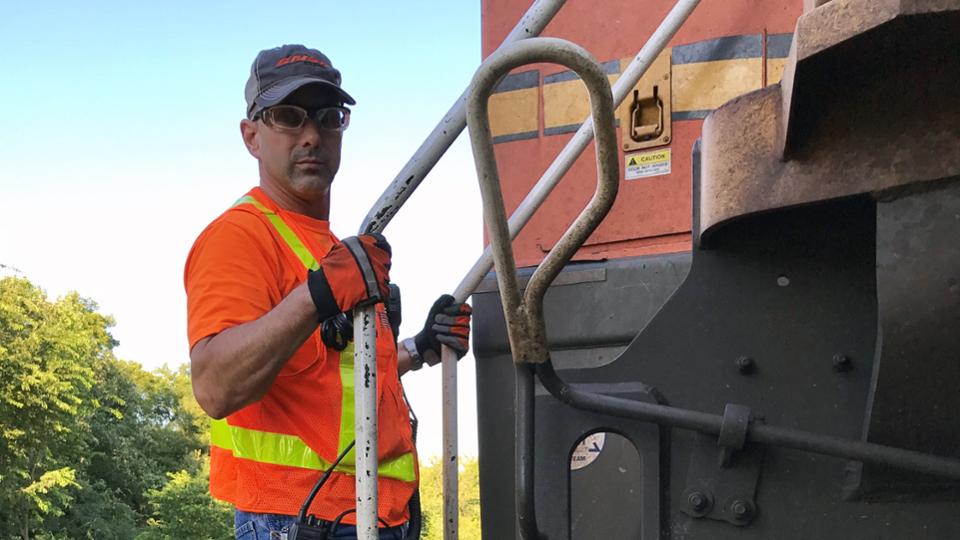November 13, 2017
Veteran uses NARS training to fuel second career.
With almost 20 years of military service under his belt, Greg Ambuehl decided to explore a new career track and become a railroad conductor.
Ambuehl, a retired gunnery sergeant with the United States Marine Corps, credits determination, persistence and — most of all — the training he received from the National Academy of Railroad Sciences (NARS) for landing a conductor job with BNSF in Texas.
After one botched interview with Union Pacific and multiple “thanks but no thanks” replies from CSX, Norfolk Southern, Kansas City Southern and BNSF, the Illinois native turned to the internet for advice. That’s when he ran across a forum that suggested he apply for admission to National Academy of Railroad Sciences (NARS) training in Overland Park, Kansas.
Ambuehl was stationed in Quantico, Virginia, and still on active duty in the Marine Corps when he discovered NARS. After some research, he was able to use military tuition assistance, and JCCC’s Veteran and Military Student Resource Center assured he would receive in-state tuition since he was still considered active duty.
“So, in the end, I could use 90 days of terminal leave and had NARS paid for with no out-of-pocket expense,” Ambuehl said.
“The railroad conductor program at NARS prepared me academically 100 percent and gave me exposure to the hands-on work you perform as a conductor,” he said. “The added workplace skills portion was not only as important as the conductor curriculum, it may have made the difference in me getting an interview and nailing it.”
NARS added a Workplace Skills class to the Railroad Conductor certificate after the Railroad advisory board proposed the need for soft-skills training. Students learn interviewing skills, how to prepare a résumé and fill out job applications properly, testing procedures, communication skills and human relations knowledge needed for today’s job market.
Words from the wise
Ambuehl says the instructors and staff make NARS training a critical success. “While the field training may have been my favorite part, it was the staff that made the overall experience,” he said.
Ambuehl has advice for would-be students and advises that attending NARS alone does not buy you a job on the railroad. He offers these five tips for potential students:
- Show up on time
- Pay attention in class
- Study nightly and complete homework
- Prepare for the exams
- Give 100 percent effort in workplace skills
“If you party nightly, squeak by on the homework, simply pass the exams, and gaffe on the workplace skills, you may or may not have given yourself a leg up on the hundreds of other people applying for that same job,” he said.
Research has rewards
NARS prepared Ambuehl academically and gave him the needed exposure in the field. However, nothing can prepare job candidates for being on call 24/7, which is something that railroad workers can expect.
“It is not for everyone, so do your research and talk to people before making a final decision to see if working as a conductor is the right thing for you,” he said.
Although there might be early mornings or cold days, “The thrill of moving a 17,000-ton coal train gets my blood flowing,” he said.
Get aboard for online training
NARS offers face-to-face classes in railroad conductor training and, new for 2018, NARS will offer an online six-month Railroad Conductor training program. The new program will also include seven days of field experience and will benefit the population of students who are not able to spend six weeks in Overland Park to attend classes. Approximately 52 percent of students in the NARS program are from states other than Kansas and Missouri.
The first online session begins Jan. 16. Get your railroad career rolling! Apply for NARS today!





